The integration of AI for customer support is revolutionizing how businesses interact with their customers. AI customer service FAQs explain how AI is utilized in customer service to automate routine tasks through tools like chatbots and virtual assistants. From answering routine queries to providing instant, personalized responses, artificial intelligence for customer service is drastically enhancing the customer experience. In the modern digital age, AI-powered customer service tools are not just an option—they are becoming essential to meeting the ever-growing expectations of consumers for immediate and efficient solutions. By implementing AI in customer service, businesses can boost customer satisfaction, improve operational efficiency, and strengthen customer relationships.
What is AI in Customer Service?
AI in customer service refers to the deployment of artificial intelligence technologies to enhance the customer experience and streamline customer service operations. By leveraging AI-powered customer service tools, businesses can automate routine tasks, provide personalized support, and gain valuable insights from customer data. This not only improves customer satisfaction but also reduces response times and increases the overall efficiency of customer service teams. AI in customer service encompasses a range of applications, from chatbots that handle simple queries to advanced analytics that help anticipate customer needs and preferences.

AI in Customer Service: Transforming Customer Interactions
Artificial intelligence has made significant inroads in enhancing the overall customer service experience. AI customer service tools use advanced technologies like natural language processing (NLP) and machine learning to understand and respond to customer queries in real-time. This allows support teams to offer more personalized and timely responses, whether through customer service chatbots or AI-powered voice assistants.
One of the most notable advantages of AI for customer support is its ability to streamline customer service operations. Tasks like responding to common customer questions, resolving simple requests, and providing customer service FAQs can be automated, reducing the workload for human agents. AI customer service FAQs enhance service efficiency and allow human agents to focus on more complex inquiries. This frees up time for support agents to focus on more complex customer requests and interactions that require a human touch.
Moreover, AI-powered customer service can provide consistent service around the clock, offering immediate answers and solutions regardless of time zones or business hours. By automating routine tasks, businesses can reduce response times, enhance agent productivity, and ensure customers receive fast and efficient service.
How AI Enhances the Customer Service Team’s Efficiency
AI in customer service plays a crucial role in improving the efficiency of customer service teams. With AI-powered customer service chatbots, businesses can handle a higher volume of customer queries without the need for additional staff. These AI systems can process large amounts of customer data and customer history, allowing them to anticipate customer needs and provide relevant, accurate responses. AI customer service FAQs contribute to handling a higher volume of customer queries efficiently by automating routine tasks and providing quick answers.
For example, by analyzing previous customer interactions and using sentiment analysis, AI can detect potential dissatisfaction and provide agents with real-time insights on how to better handle specific situations. This type of technology helps support teams to offer personalized service, responding to individual preferences and behaviors.
Additionally, AI customer service tools can learn from past customer conversations and adapt responses accordingly. This machine learning capability ensures that responses are constantly improving, and support becomes more personalized over time. As AI continues to analyze data from customer conversations, it can also provide customer service teams with key insights to improve future interactions.
AI in Customer Service: Improving Customer Satisfaction
One of the most significant impacts of AI in customer service is its ability to boost customer satisfaction. AI tools can deliver immediate answers to simple queries, reducing the need for customers to wait in long queues or navigate complex phone systems. AI customer service FAQs play a crucial role in providing these immediate answers, enhancing customer satisfaction by automating routine tasks through tools like chatbots and virtual assistants. This level of instant support aligns perfectly with the expectations of today’s consumers, who demand quick, efficient service.
AI also helps support teams provide more consistent responses across multiple channels, whether it’s through social media, chat, or email. This consistency is vital in maintaining high levels of customer satisfaction, as customers expect to receive the same level of service regardless of how they reach out. By leveraging AI to automate customer service interactions, businesses can ensure that every customer receives timely, accurate, and helpful information.
Moreover, AI can help companies monitor customer sentiment by analyzing feedback and interactions in real time. This allows businesses to quickly address any negative experiences or potential issues before they escalate, thus improving overall customer satisfaction and loyalty.

Key Applications of AI in Customer Service
AI has numerous applications in customer service, each designed to improve efficiency and enhance the customer experience. Here are two key applications:
AI-Powered Chatbots
AI-powered chatbots are revolutionizing customer service by simulating human-like conversations and providing instant responses to customer queries. These chatbots can be integrated into various channels, such as messaging platforms, websites, and mobile apps, offering customers a seamless and efficient support experience. By handling routine inquiries and providing personalized assistance, chatbots free up human agents to focus on more complex customer requests, thereby improving overall service quality.
AI-Driven Workforce Management
AI-driven workforce management is another critical application of AI in customer service. By analyzing customer data and predicting demand for support, AI enables businesses to optimize their workforce. This ensures that the right number of agents are available to handle customer requests at any given time, improving response times and customer satisfaction. AI can also help in scheduling and resource allocation, making customer service operations more efficient and responsive to changing customer needs.
Leveraging AI to Streamline Customer Service Operations
By incorporating AI into customer service, businesses can significantly streamline customer service operations. AI systems are capable of analyzing customer data to identify trends, common issues, and customer preferences. This allows companies to optimize their support teams by focusing resources where they are needed most. Additionally, AI can automatically categorize and prioritize customer requests, ensuring that urgent issues are handled first.
With AI tools handling a large portion of routine tasks, such as answering FAQs or processing basic inquiries, human agents can focus on high-priority tasks that require personal interaction and decision-making. AI customer service FAQs contribute to this process by automating responses to common questions, allowing human agents to address more complex inquiries. This not only improves the overall customer experience but also enhances the quality of service professionals’ interactions, leading to more productive and meaningful engagements with customers.
Implementing AI in Customer Service
Implementing AI in customer service requires careful planning and execution. Businesses should start by identifying areas where AI can add the most value, such as automating routine tasks or providing personalized support. It’s crucial to have the necessary infrastructure and resources in place to support AI-powered customer service tools. This includes investing in the right technology, training staff to work alongside AI systems, and continuously monitoring and refining AI applications to ensure they meet customer needs effectively. By strategically implementing AI, businesses can enhance their customer service operations and deliver a superior customer experience.
Overcoming Challenges and Misconceptions
While AI has the potential to revolutionize customer service, businesses must navigate several challenges and misconceptions. A common misconception is that AI will replace human agents. In reality, AI is designed to augment and support human agents, not replace them. AI handles routine tasks, allowing human agents to focus on complex customer interactions that require empathy and nuanced understanding.
Businesses should also be aware of potential risks associated with AI, such as data privacy and security concerns. It’s essential to implement robust data protection measures and ensure compliance with relevant regulations. By understanding the benefits and challenges of AI in customer service, businesses can harness its power to improve customer satisfaction, reduce response times, and increase the overall efficiency of their customer service operations.

The Future of AI-Powered Customer Support
The future of customer service lies in the integration of artificial intelligence, enabling businesses to offer exceptional service at scale. As AI technologies continue to evolve, they will play an increasingly critical role in shaping the way companies serve their customers. AI customer service FAQs will continue to enhance service efficiency and customer satisfaction. Businesses that embrace AI-powered customer service tools will be able to provide more efficient, personalized, and responsive service, setting themselves apart from competitors.
Looking ahead, advancements in generative AI will further improve the ability to craft personalized, human-like conversations. This could be transformative in building deeper customer relationships, as AI tools become better at understanding the nuances of customer sentiment and preferences.
As AI for customer support continues to evolve, companies will be able to integrate these tools more seamlessly into their existing workflows, empowering customer service teams to deliver a higher standard of service. By automating repetitive tasks, analyzing customer behavior, and providing real-time feedback, AI is poised to redefine the future of customer service operations.
Conclusion: Embracing AI for Better Customer Support
Incorporating AI in customer service offers businesses the opportunity to enhance their customer service experience by automating routine tasks, analyzing customer feedback, and providing more personalized service. From handling customer queries instantly to offering consistent service across various channels, AI-powered customer service tools are paving the way for more efficient and effective customer support operations. AI customer service FAQs contribute to these improvements by automating routine inquiries, allowing human agents to focus on more complex issues and enhancing overall service efficiency.
Businesses that leverage artificial intelligence in their customer support strategies can anticipate and meet customer needs faster, improve customer satisfaction, and build stronger customer relationships. By embracing AI, companies can deliver exceptional service while streamlining their processes, ultimately leading to increased customer loyalty and long-term success.
By using AI tools like natural language processing, sentiment analysis, and machine learning, businesses can transform their customer service teams into highly efficient, data-driven operations that consistently exceed customer expectations. The future of customer support lies in leveraging AI to deliver faster, smarter, and more personalized service at every touchpoint.

SalesMind.ai is the ultimate choice for businesses looking to revolutionize their customer support teams through AI-powered customer service. With its advanced natural language processing (NLP) and machine learning algorithms, SalesMind.ai can analyze customer conversations in real-time, enabling support teams to provide personalized responses that reflect a deep understanding of customer needs and customer sentiment. This AI system is designed to seamlessly handle routine tasks like answering customer queries and customer service FAQs, while also offering consistent, high-quality responses that elevate the overall customer service experience. By automating these repetitive tasks, businesses can boost agent productivity and focus on complex customer requests that require a human touch.
What sets SalesMind.ai apart from other AI customer service tools is its ability to offer real-time insights into customer behavior and preferences. The platform uses sentiment analysis to detect customer satisfaction levels, helping businesses adjust their strategies on the fly to better serve customers and ensure improved customer satisfaction. Additionally, SalesMind.ai integrates seamlessly with your existing CRM system, allowing your customer support team to access relevant customer data, previous interactions, and customer history, ensuring every interaction is tailored to the customer’s specific needs. By leveraging AI tools like SalesMind.ai, companies can not only deliver efficient customer support but also build stronger, more meaningful customer relationships that drive long-term loyalty and service quality.
